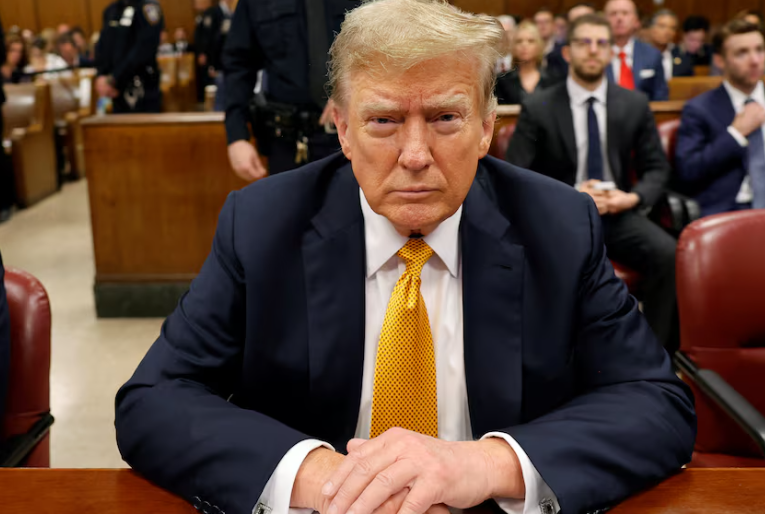New York’s highest court has decided not to hear former President Donald Trump’s appeal regarding the gag order in his hush money case, according to a decision list posted on Tuesday.
As a result, the gag order issued by Judge Juan Merchan remains in effect.
In addition to this, Trump has requested Judge Merchan to lift the gag order before his sentencing scheduled for July.
The former president was convicted on 34 counts of business fraud related to hush money payments to adult film star Stormy Daniels.
Trump’s lawyer, Todd Blanche, declined to comment on the matter.
The gag order was implemented in March, just before the trial commenced. Judge Merchan granted the prosecutors’ request to restrict Trump from making public statements about any witnesses in the case, jurors, prosecutors, court staff, or their family members.
However, Trump is still allowed to comment on Judge Merchan and Manhattan District Attorney Alvin Bragg.
During the trial, Merchan fined Trump $10,000 and found him in criminal contempt for violating the gag order ten times.
The judge also warned that further violations could result in jail time for Trump.
Trump has 30 days to file a motion for leave to appeal, providing another opportunity for the court to reconsider hearing the case, according to court spokesman Gary Spencer. Once filed, the court will decide again whether to take up the case.
In their filing with the appeals court, Trump’s attorneys argued that the gag order raises significant constitutional issues. They claimed:
“This Gag Order restricts President Trump’s core political speech on matters of central importance at the height of his Presidential campaign, where he is the leading candidate, and thus it violates the fundamental right of every American voter to hear from the leading candidate for President on matters of enormous public importance.”
Trump’s lawyers maintained that the constitutional questions remain relevant despite the trial’s conclusion and noted that the gag order lacks a set termination date.
If the Court of Appeals were to find the gag order unconstitutional, Trump’s attorneys argue that it would undermine the justification for the fines imposed on Trump for his violations.
In response, the Manhattan District Attorney’s office urged the court to dismiss the appeal, citing Trump’s “well-documented history of leveling threatening, inflammatory, and denigrating remarks against trial participants.”

